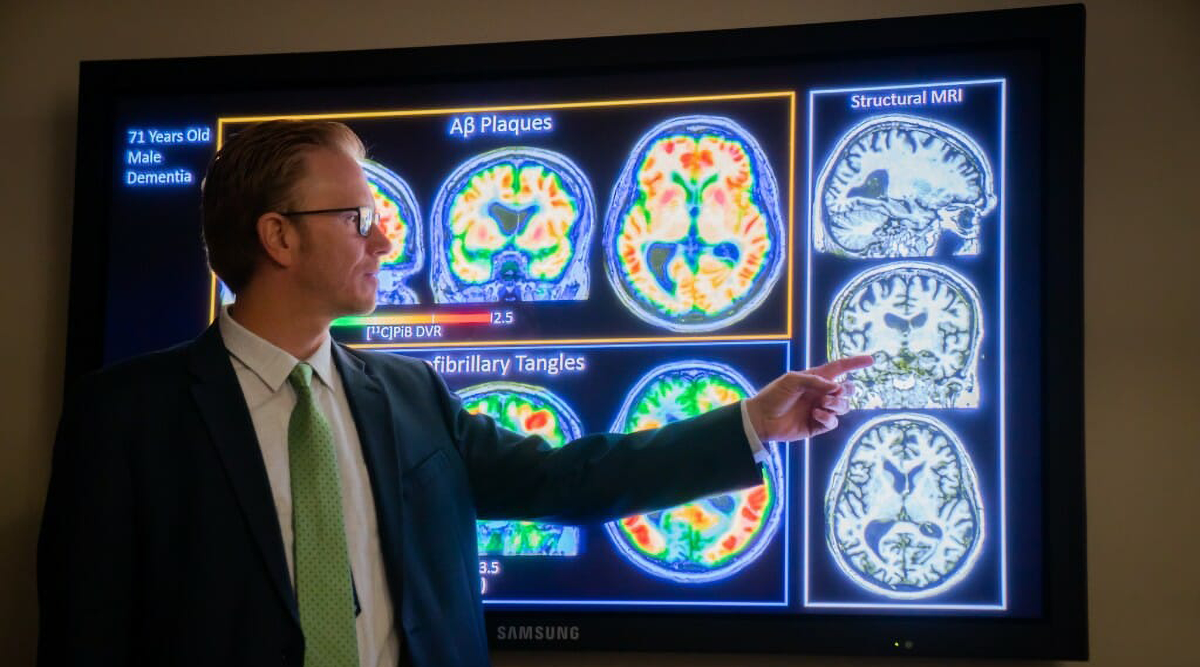
02 Dec UW–Madison Alzheimer’s disease study is largest of its kind
With more than 1,700 research participants and 20 years of data, the Wisconsin Registry for Alzheimer’s Prevention (WRAP) is now the largest, and among the longest-running, family history studies of Alzheimer’s disease in the world.
“I’m especially grateful to our research team, which includes our remarkable research participants who have dedicated their time to helping improve the science of Alzheimer’s disease,” says Sterling Johnson, WRAP principal investigator and associate director of the Wisconsin Alzheimer’s Institute at the University of Wisconsin–Madison. “Because of them, we are making real progress towards a future of delaying, preventing and ending Alzheimer’s disease.”
The study began in November 2001, with just one participant. Now, with each year that passes, participation becomes even more valuable. The longer a person takes part in research, the more scientists can learn about changes that may happen in the brain and how these changes may relate to cognitive function over time, explains Johnson, who is also associate director and Biomarker Core leader in the Wisconsin Alzheimer’s Disease Research Center.
Among the participants, 72 percent have a family history of Alzheimer’s disease, which is a risk factor. Every two years, participants take part in memory testing, blood draws and interviews. A subset also undergoes brain imaging and spinal fluid tests. Read more …



